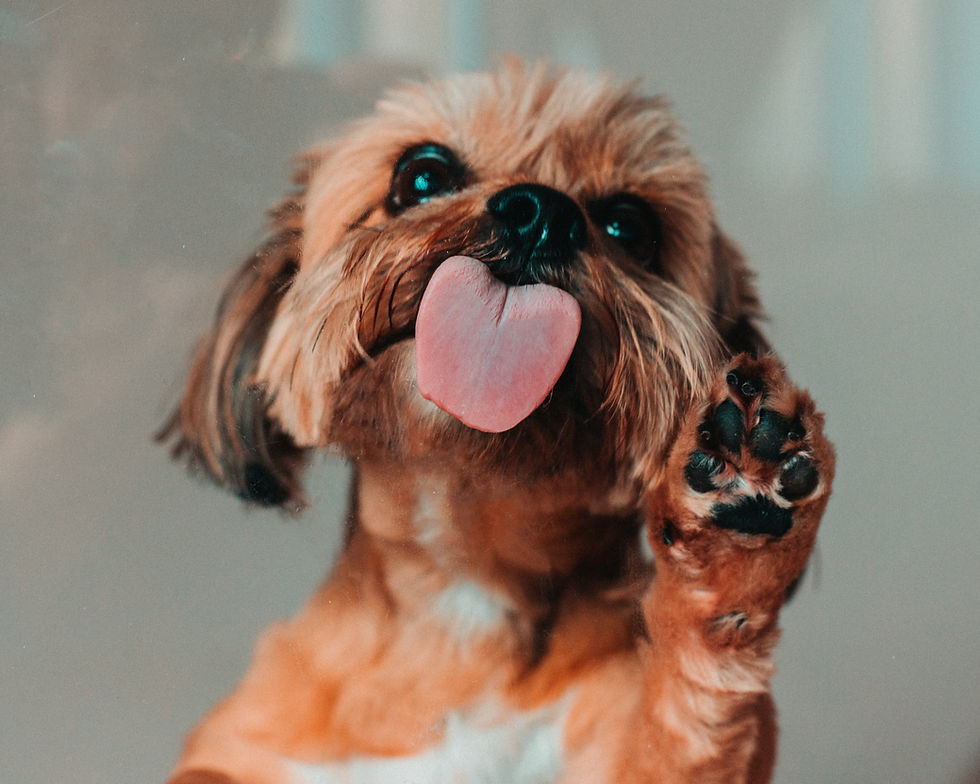
Canine personality is one of the things that should be on the forefront of your mind when handling dogs. Whether you're in vet care, grooming or pet care - knowing how a dog feels means understanding their individuality. Here's just a little snippet of what to look for.
Introverts may actually be more difficult to interpret than extrovert dogs when in a rescue situation or when being handled at the groomers, at the vets or for therapy. This is because they can turn their emotions inward and not display them outwardly at the time, however anxious they are feeling. This means that if their subtle communication signals are not read they can be very easily overwhelmed, as people perceive that they are coping. If anything, an introverted dog should be given more breaks, and should be listened to at the first sign of looking shut down if you have missed the earlier communication signals when handling.

Extroverts are energised by people and social activity. These dogs can be the true clowns of the dog world and are totallyin your face and up for any adventure. If not understood, they could be mislabelled as attention seeking. They can crumple if not in the middle of a crowd and will probably struggle to be left alone all day without company and entertainment.
They can act first and think later, or in fact not at all, so this can cause problems when in a learning environment. In a class these dogs will be much more interested in interacting with all the other dogs and people to pay attention to learning and training, and in fact may appear to struggle at retaining information and the lessons being learned. The fact is, they just have their minds on other things, like having a really good time. In the park they may seem distracted by everything, as they want to say hello and play with everyone, human and nonhuman, in their vicinity. When being treated, they may struggle to stay still and will be more interested in interacting with you or exploring the environment. They are friendly, approachable and you will always find them in the centre of things. In fact, you may have to teach them to rest and be quiet in busy households.

Extroverts wear their heart on their sleeves, so to speak. You will always know how they are feeling and if they are having a tough time. They are expressive and can communicate emotions well. They are much more proactive than their introverted counterparts and may appear to deal with changes to their lifestyle, routine and circumstances better than an introvert. Take them on holiday and stay in a new place, and they will fit right in with the new environment and will be up for exploring and doing new things.
To learn more about the nuances of canine handling and how to work with them in a way they understand, join Toni on her Compassionate & Safe Dog Handling Diploma course with the ISCP by clicking the button below.

Toni Shelbourne has three decades of experience working with dogs and wild canids. She is a behaviourist (Full member of The Association of INTODogs and ICAN, the International Companion Animal Network), Tellington TTouch Practitioner, Real Dog Yoga Instructor and co-author of the HELP! My Dog book series. She lives in Oxfordshire where she sees clients, runs workshops and gives talks and webinars.
Yorumlar